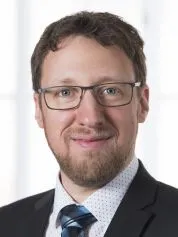Spatially Coupled LDPC Codes - Construction and Burst Correction Capabilities
Prof. Laurent Schmalen
Karlsruher Institut für Technologie
In this seminar, we will review spatially coupled LDPC codes,
one of the few classes of codes that are universally capacity achieving
over a broad range of channels. We review basic construction methods and
show the main convergence behavior. We highlight how to construct codes
tailored to this specific convergence behavior that significantly
outperform LDPC codes, even at very low bit error rates. This makes this
class of codes well suited for applications that require extremely low
error rates like optical communications or data storage. In the second
part of the lecture, we show that spatially coupled LDPC codes have
outstanding burst correction properties that make them well suited for
channels with burst errors and distributed storage applications (where
the outage of a server can be modeled as a burst erasure). We show how
to calculate bounds on the correction performance and how to use these
to design codes.
Laurent Schmalen is a professor at Karlsruhe Institute of Technology
(KIT) where he leads the Communications Engineering Lab (CEL). He
received the Dipl.-Ing. degree in electrical engineering and information
technology and the Dr.-Ing. degree from the RWTH Aachen University of
Technology, Aachen, Germany. From 2011 to 2019, he was with Bell Labs,
Stuttgart, Germany, as a member of technical staff and from 2016 to 2019
also as department head of the Coding in Optical Communications
department. From 2014-2019, he was Guest Lecturer at the University of
Stuttgart, Germany. His research interests include forward error
correction, modulation formats, and information theory for future
optical networks. He was a two-time recipient of the Friedrich-Wilhelm
Award, and the E-Plus Award for his Ph.D. thesis. He is a senior member
of the IEEE and was also the recipient of the Best Paper Award of the
2010 ITG Speech Communication Conference, the 2013 Best Student Paper
Award at the IEEE Signal Processing Systems workshop, an award for the
most innovative AI solution at the Nokia AI conference and the 2016
Journal of Lightwave Technology best paper award. Additionally, he
received 2014 IEEE Transactions on Communications Exemplary Reviewer
Award and the 2019 Journal of Lightwave Technology Outstanding Reviewer
Recognition.
